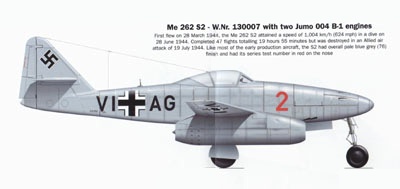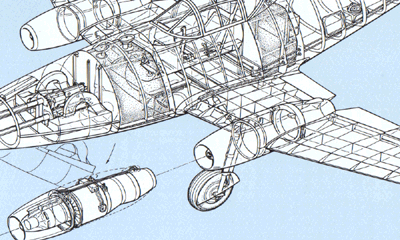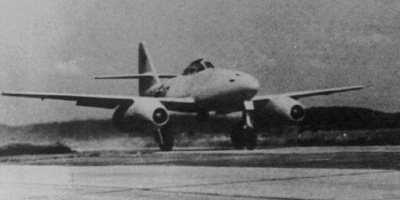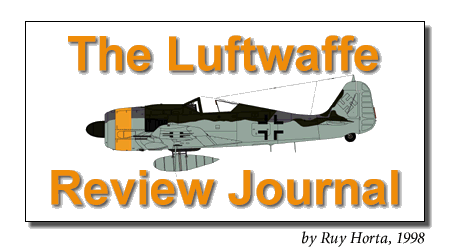| The Messerschmitt
Me262 has always been one of my favorite aircraft. Her clean lines, shark like appearance
and short but turbulent history have always intrigued me. It shouldn't come as a surprise
that books featuring this particular type have a high priority on my wish list.
Thus I anxiously awaited the arrival of this new book published by Classic Publications, a company that made a distinct mark with its
two previous publications JV44 The Galland Circus,
by Robert Forsyth and Hs129 Panzerjäger, by
Martin Pegg, instantly becoming a synonym for accuracy and beauty...and Me262 Volume One certainly seems to carry on that banner.
J. Richard Smith and Eddie J. Creek are promising THE complete Me262 study, and it looks
like they are holding true to their promise, certainly judging by their first installment,
Volume One, which describes the early phase of the Turbinenjäger, the people involved and
the politics around the planning and development of the first operational jet fighter in
the world. It may come as no surprise that the story ends in the spring of 1944 and leaves
you with an anxious expectation of Me262 Volume Two,
a good sign.

First I'd like to mention the art work of Tom Tullis, a
young aviation artist who is certainly a rising star. In my humble opinion, his profiles
alone are worth purchasing a copy of Me262
Volume One. We are treated with expertly done
profiles of all the early prototypes and pre-production aircraft, some of which are fold
outs. There are also some color profiles of earlier stages of design and these visualize
the design stages better then in any previous publication.

Besides the great color work, there's a treasure of line drawings illustrating the
technical side of development. These drawings by Arthur Bently and Günther Sengfelder,
take you through a step by step journey into the evolving Messerschmitt Me262.
Me262 Volume One is also full b/w photographs, many of which I haven't seen before
in previous publications. Again J. Richard Smith and Eddie J. Creek seem to have succeeded
in presenting us with a complete chronology of the early history, planning, design and
development, leaving few or no gaps.

What I personally found very interesting were the facsimile copies of official documents
on many pages. Besides being decorative, these often hold gems of information.
A number of appendices Me262
Volume One provide the finishing touches. One
is an extensive list of Messerschmitt personalities, often accompanied with a small
biography. Another especially worth mentioning is Kenneth A. Merrick's description of the
early camouflage schemes and markings, complete with explanation.
There is a lot more that I could write, but I should leave something for the reader to
find out. To be honest I found only two things I didn't like. One is minor, the fact that
the authors left out a photograph or any likeness of the Me 209, which with regards to the
importance it has in the overall story is slightly odd.
The other is of a pure technical nature and has nothing to do with the content. I found
that, similar to my copy of JV 44, there was quite a bit of smudging. Some pictures seem
to have stained the opposite page and that shouldn't happen with an expensive book. Some
of the excellent profile art and photographs looked quite bleak, pointing to some problems
at the printers. It may have been the fact that I received a very early copy, equally true
of the JV 44 book, and that Classic has solved this problem.
Apart from these two issues, I'm certain that any Luftwaffe enthusiast or student of World
War 2 aviation will not like to miss out on this one, be smart and reserve a copy early
on, because you may very well be sorry when further along the series there comes the time
that Me262 Volume One has been sold out.
For more information about this title, check Classic Publications.
|


